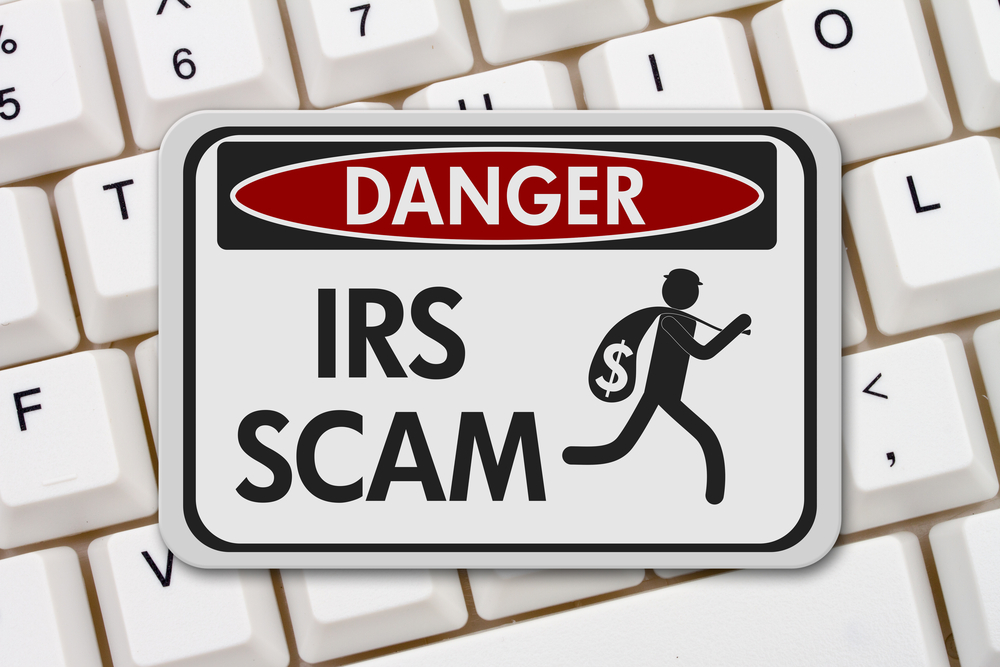

 So long as taxes exist, tax scams will exist as well. One of the most common scams during tax season involves a scammer filing a fraudulent tax return using your name and Social Security number. They collect the refund from the IRS in your place, and you’re none the wiser until you try to file your own return a short time later. Every year, the IRS looks for new ways to stop scams like these and to educate taxpayers on how to protect themselves from such attacks.
So long as taxes exist, tax scams will exist as well. One of the most common scams during tax season involves a scammer filing a fraudulent tax return using your name and Social Security number. They collect the refund from the IRS in your place, and you’re none the wiser until you try to file your own return a short time later. Every year, the IRS looks for new ways to stop scams like these and to educate taxpayers on how to protect themselves from such attacks.
This year, they expanded the Identity Protection Personal Identification Number, or IP PIN, program—one of the most effective programs for preventing this form of tax fraud. Here’s what you need to know about this program, how to enroll, and how it can protect you.
What Exactly Is It?
So, what exactly is an IP PIN? As you may have guessed from the name, your IP PIN is an identification number assigned to you from the IRS. You use this number when filing your return to verify your identity and indicate that your return is the legitimate one.
The IP PIN program was first introduced as a way for victims of tax fraud to validate their identities when filing a corrected return, after their identity and their tax refund had already been stolen. However, in 2010, the government began using IP PINs as a preventive measure instead, assigning these numbers to taxpayers in Florida, Georgia, and Washington, D.C.—areas with the highest rates of tax fraud.
Last tax season, the IRS finally expanded the program and made IP PINs available to taxpayers in other states with high rates of tax fraud—namely, California, Delaware, Illinois, Maryland, Michigan, Nevada, and Rhode Island. This tax season, they added Arizona, Colorado, Connecticut, New Jersey, New Mexico, New York, North Carolina, Pennsylvania, Texas, and Washington to the list of states that are eligible to participate.
How Does It Protect You?
Now that you have some understanding of the program’s purpose, let’s discuss exactly how it can protect you. As already mentioned, filing a false return in your name is one of the most common tactics in the tax scammer’s handbook. Once you receive your six-digit IP PIN from the IRS, you will need to put this number on your tax return when you file to verify your identity.
If you’re on their list of program participants, the IRS will not accept any e-filed tax return that does not include the correct IP PIN, so scammers cannot e-file a false return in your name. Paper returns without the proper IP PIN will also receive extra scrutiny from the IRS, significantly reducing the likelihood of a false return being successfully filed in your name.
Additionally, your IP PIN is only good for a single year, and you’ll automatically be given a new six-digit number every tax season. (Don’t worry, you only need to opt in once.) This makes it much more difficult for scammers to steal your IP PIN number than it is for them to steal other identifying information, like your name and SSN.
How Do You Participate?
So, how do you get this extra level of protection? If you live in one of the states listed above, you might wonder why you haven’t received an IP PIN yet. This is because the IP PIN program is an opt-in program, so you won’t be assigned one automatically. If you would like an IP PIN, you’ll need to meet one or more of the following criteria:
If any of the above are true for you, you can apply to receive an IP PIN on the Get An Identity Protection PIN page on the IRS website.
Who Needs an IP PIN?
If you qualify for an IP PIN, there’s really no reason not to get one. It gives you an extra layer of security that can protect you from scams and all of the ensuing headache that they bring. However, if your personal information has been stolen in any recent data breaches, it’s even more important for you to ensure that that information isn’t used to file a false return in your name; you should apply for an IP PIN as soon as possible.
Additionally, if you tend to wait to file your tax return, an IP PIN can be very beneficial for you. Tax scammers will typically file their false returns early on, so they can get their version in to the IRS before you do. Because of this, those who delay filing are more likely to fall victim to this tax scam, so it’s even more important for you to get an IP PIN to protect yourself.
If you have any additional questions about IP PINs or filing your tax return, please feel free to reach out to us and speak to one of our experienced and qualified CPAs at Kohl & Company today.
Article provided by: